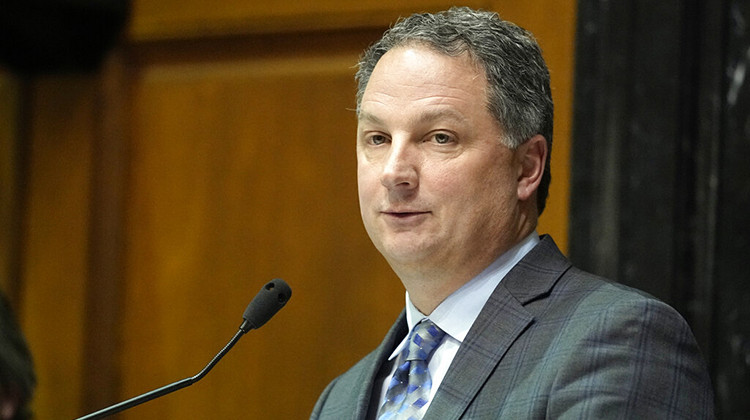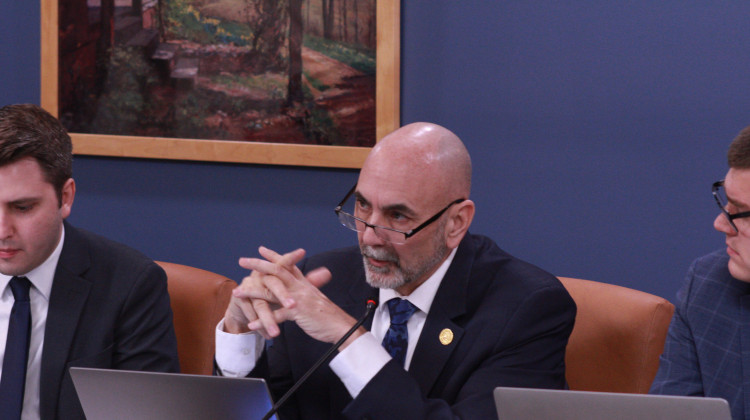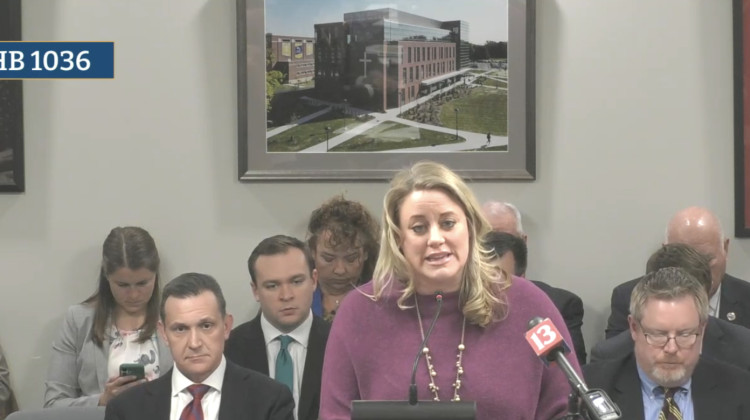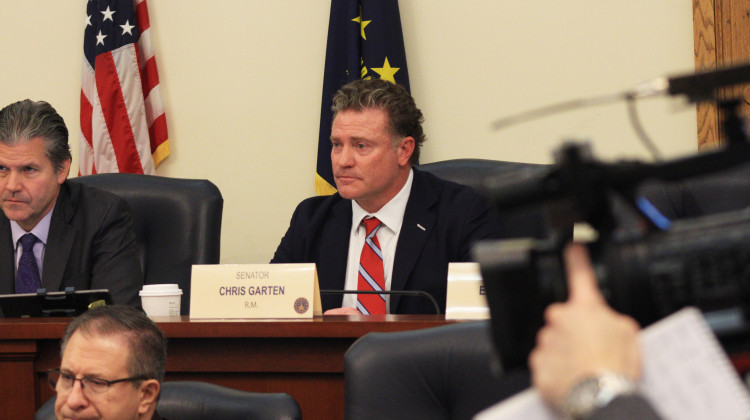
Speaker of the House Todd Huston, R-Fishers, speaks during the first day of the legislative session at the the Statehouse, Tuesday, Jan. 4, 2022, in Indianapolis.
AP Photo/Darron CummingsINDIANAPOLIS (AP) — Indiana’s ongoing spike in COVID-19 illnesses isn’t deterring state leaders, who remain determined to bring an end to the official statewide public health emergency.
The Republican-dominated state Legislature started its 2022 session Tuesday and planned to quickly take up actions that GOP Gov. Eric Holcomb says will allow him to drop the emergency declaration that he first issued in March 2020. Those steps come as health officials are concerned about the fast-spreading omicron variant further stressing Indiana’s hospitals that have been facing their highest-ever overall patient loads.
A House committee is set to vote Thursday on a bill that includes administrative actions sought by Holcomb, along with provisions that would force businesses to grant broad exemptions to any workplace COVID-19 vaccination requirements. The state’s major medical and business groups oppose the employer limitations, as do Holcomb and Senate Republican leaders.
Republican House Speaker Todd Huston said the ongoing COVID-19 spread wasn’t giving him second thoughts about proceeding.
“COVID is something that we’re going to have to live with and people are going to have to take the precautions that they feel are best,” Huston said. “I’m so grateful and thankful for our healthcare and medical providers who are doing everything they can, but no one thinks or believes this is going away. We had to live through it and around it.”
Indiana hospitals were treating nearly 3,200 COVID-19 patients as of Sunday, according to tracking by the state health department. That is up about 160% since early November and the most such patients since mid-December 2020 before the vaccines were widely available.
About a quarter of those patients are in hospital intensive care units as Indiana averaged more than 40 COVID-19 deaths a day through nearly all of December. Those COVID-19 cases and other severe illnesses pushed the state’s total hospitalizations for any reason to highest-ever mark of nearly 12,000 patients in mid-December and remained at nearly 11,500 this week after a holiday period when fewer scheduled surgeries are typically performed, according to the Indiana Hospital Association.
That high patient level is forcing many hospitals to keep patients in emergency departments for several hours awaiting open rooms and leaving them with little ICU space for new critically ill patients, said Brian Tabor, the hospital association’s president.
“The strain right now is coming from the fact that the system is essentially like an engine that’s been running at full tilt for an extended period of time without any downtime for maintenance,” Tabor said. “We’re going to continue to be in an emergency situation for some time within the four walls of the hospital.”
The ongoing statewide health emergency has become a persistent target of conservative criticism, and Senate Republicans are backing a bill that focuses solely on three law changes sought by Holcomb. The governor said those steps would allow the state to keep receiving enhanced federal funding for Medicaid expenses and those eligible for food assistance programs, along with letting the state health commissioner continuing issuing a standing doctor’s order for the administration of COVID-19 vaccinations to children ages 5 to 11.
“Ending the public health emergency doesn’t mean that COVID is gone,” Holcomb said Monday. “… We’ll continue on a day, in day out basis, on a weekly basis, to deal with COVID as long as it is with us.”
Legislative leaders, meanwhile, have dropped the COVID-19 precautions adopted for last year’s session, when the House moved from its Statehouse chamber to a large conference room inside a state office building for allow greater distancing between its 100 members. The 50-member Senate closed off its balcony to the public and placed 20 senators there in order to space out more.
The plexiglass surrounding the podiums from which legislators speak is gone and all committee meetings rooms are being opened again to the public. Nearly all Democratic House members were wearing face masks during Tuesday’s opening session, while it appeared fewer than five Republicans wore masks.
Huston told House members it was their personal responsibility to protect themselves and others.
“We’re back here and we’re back here to stay,” Huston said. “So, to do that, I’m just saying we all must stay healthy and take care of ourselves.”
 DONATE
DONATE






 Support WFYI. We can't do it without you.
Support WFYI. We can't do it without you.